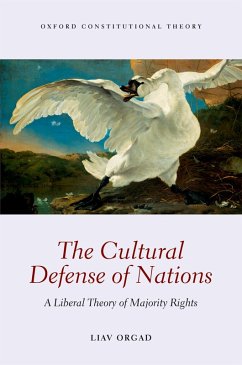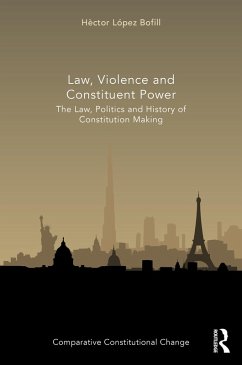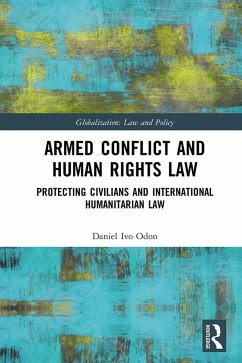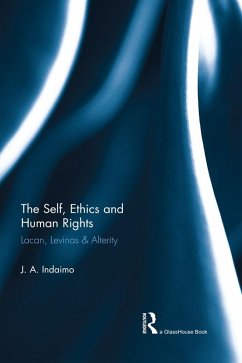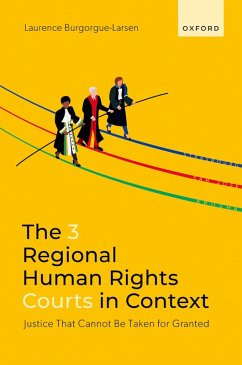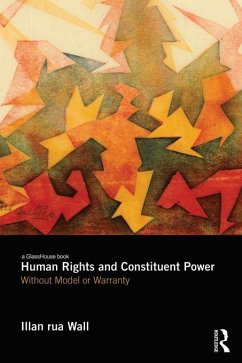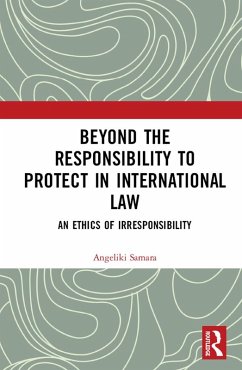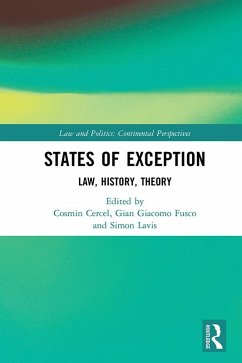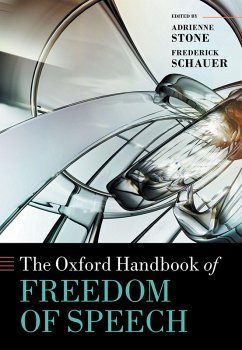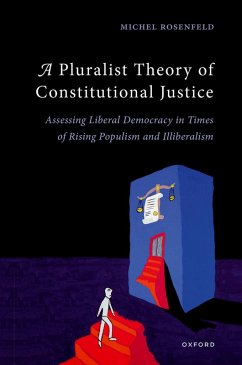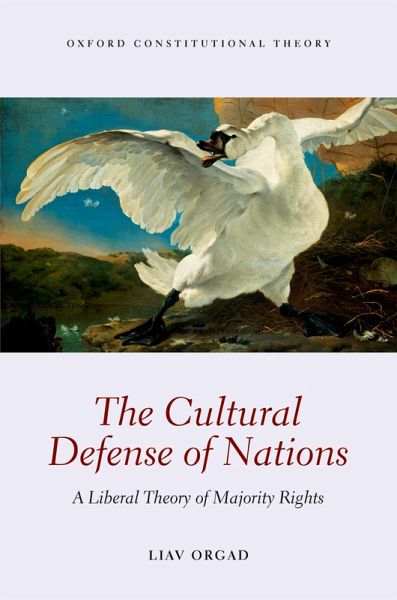
The Cultural Defense of Nations (eBook, PDF)
A Liberal Theory of Majority Rights
Versandkostenfrei!
Sofort per Download lieferbar
45,95 €
inkl. MwSt.
Weitere Ausgaben:

PAYBACK Punkte
23 °P sammeln!
The Cultural Defense of Nations presents a timely, thought-provoking thesis on some of the most pressing issues of our time-global immigration, majority groups, and national identity. Never in human history has so much attention been paid to human movement. Global migration yields demographic shifts of historical significance, profoundly shaking up world politics-as has been seen in the refugee crisis, the Brexit referendum, and the 2016 U.S. election. The Cultural Defense of Nations addresses one of the greatest challenges facing liberalism today: is a liberal state justified in restricting i...
The Cultural Defense of Nations presents a timely, thought-provoking thesis on some of the most pressing issues of our time-global immigration, majority groups, and national identity. Never in human history has so much attention been paid to human movement. Global migration yields demographic shifts of historical significance, profoundly shaking up world politics-as has been seen in the refugee crisis, the Brexit referendum, and the 2016 U.S. election. The Cultural Defense of Nations addresses one of the greatest challenges facing liberalism today: is a liberal state justified in restricting immigration and access to citizenship in order to protect its majority culture? Liberal theorists and human rights advocates recognize the rights of minorities to maintain their unique cultural identity, but assume that majorities have neither a need for similar rights nor a moral ground for defending them. The majority culture, so the argument goes, "can take care of itself." However, with more than 250 million immigrants worldwide, majority groups increasingly seek to protect what they consider to be their national identity. In recent years, liberal democracies have introduced proactive immigration and citizenship policies that are designed to defend the majority culture. This book shifts the focus from the prevailing discussion of cultural minority rights and, for the first time, addreses the cultural rights of majorities. It proposes a new approach by which liberal democracies can welcome immigrants without fundamentally changing their cultural heritage, forsaking their liberal traditions, or slipping into extreme nationalism. Disregarding the topic of cultural majority rights is not only theoretically wrong, but also politically unwise. With forms of "majority nationalism" rising and the growing popularity of extreme right-wing parties in the West, time has come to liberally address the new challenge. This is an open access title available under the terms of a CC BY-NC-ND 4.0 International licence. It is free to read on the Oxford Academic platform and offered as a free PDF download from OUP and selected open access locations.
Dieser Download kann aus rechtlichen Gründen nur mit Rechnungsadresse in A, B, BG, CY, CZ, D, DK, EW, E, FIN, F, GR, HR, H, IRL, I, LT, L, LR, M, NL, PL, P, R, S, SLO, SK ausgeliefert werden.




